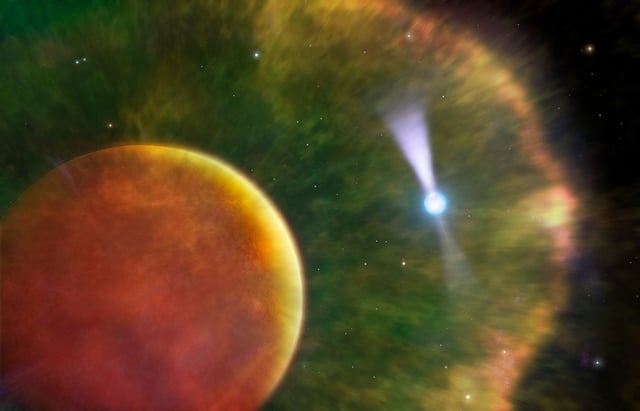Overview
- China’s FAST telescope observed a rapidly spinning neutron star stripping its companion star to a helium core, forming a rare 'spider pulsar.'
- The binary system, PSR J1928+1815, has a 3.6-hour orbital period, with the pulsar's radio signals eclipsed by its companion for one-sixth of each orbit.
- The companion star, undetectable outside radio wavelengths, is a hydrogen-stripped helium core roughly as massive as the Sun.
- This discovery offers the first direct confirmation of the long-theorized common envelope evolutionary process in binary star systems.
- Published in Science on May 22, 2025, the findings shed light on the formation of gravitational-wave progenitors and suggest over a dozen similar systems may exist in the Milky Way.


